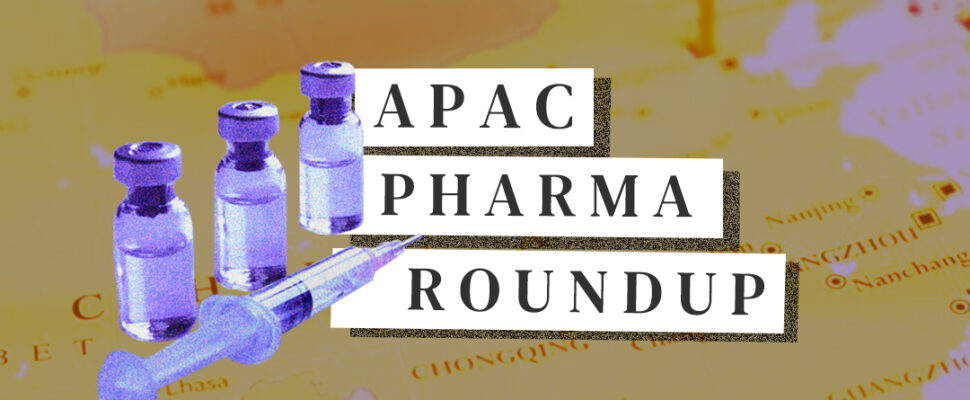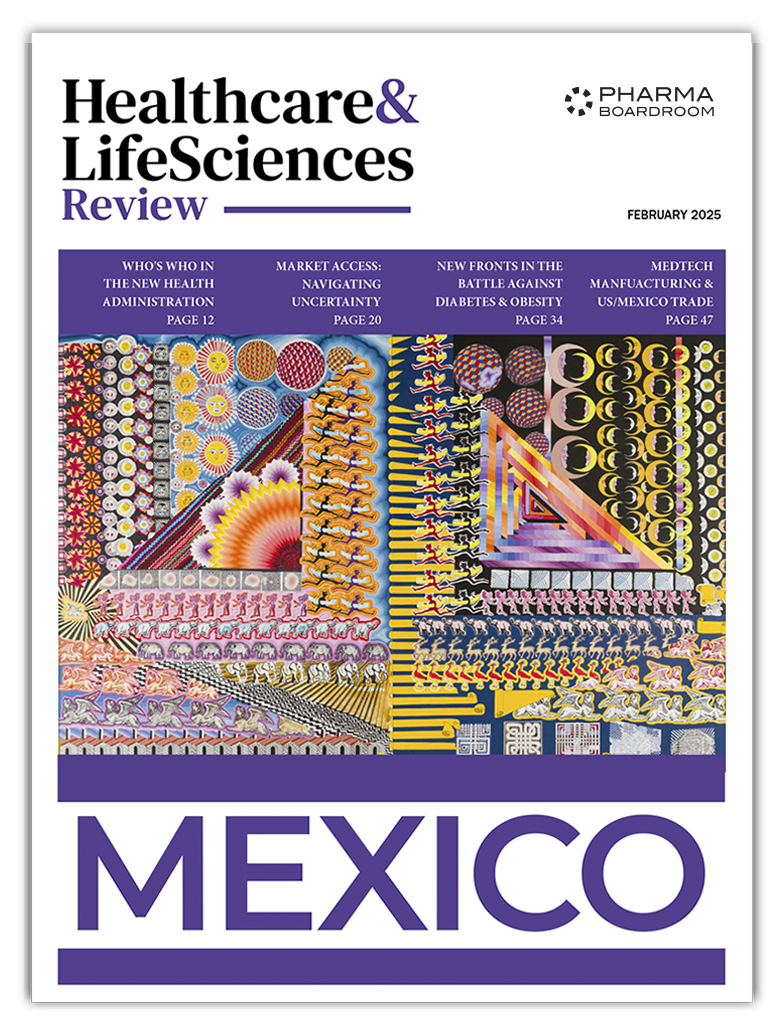A roundup of the biggest pharma stories coming out of APAC, including Eisai’s deal with biotech SEED Therapeutics and share drop after Alzheimer’s rejection in the EU; Mayne Pharma’s lawsuit against Sun; Novo Nordisk’s insulin partnership with Bio Farma, and Celltrion’s resturcturing.
Amid GLP-1 boom, Novo Nordisk strikes up insulin partnership in Indonesia (Fierce Pharma)
While much of the attention on Novo Nordisk these days revolves around the company’s wildly popular GLP-1 drugs Ozempic and Wegovy, insulin remains a critical backbone for the drugmaker.
Now, as the company steadily ups its commitments in Asia, Novo is teaming up with Indonesia’s state-owned pharmaceutical firm Bio Farma to bolster insulin packaging in the southeast Asian nation.
Biosyngen partners with Singapore’s A*STAR to advance autoimmune therapy (BioSpectrum Asia)
Singapore-based startup Biosyngen has announced a strategic collaboration with Singapore’s Agency for Science, Technology and Research (A*STAR) to enhance autoimmune therapy.
The collaborative project involves three of Singapore’s preeminent research institutions – Singapore Immunology Network (SlgN), the Institute of Molecular and Cell Biology (lMCB), and the Bioprocessing Technology Institute (BTI) – all operating under the auspices of A*STAR, alongside Biosyngen.
Australia’s Mayne Pharma sues Sun Pharma over patent infringement (Business Standard)
Pfizer transforms Melbourne facility into cutting-edge pharmaceutical manufacturing hub (Australia Manufacturing)
Pfizer Australia is investing AUD 150 million to upgrade its Melbourne facility into one of the country’s most advanced pharmaceutical production sites to combat antimicrobial resistance (AMR).
The upgrade includes the installation of cutting-edge technologies, such as robotics and AI-powered systems, to enhance the site’s specialised manufacturing capabilities, the company said in a media release. The new facility will feature advanced freeze-drying machines known as lyophilisers, integral to the production of antimicrobial treatments.
Japan’s pharma firm Kyowa Kirin announces sustainable biz strategy for APAC region (BioSpectrum Asia)
Kyowa Kirin Asia Pacific, a wholly owned subsidiary of Japan-based Kyowa Kirin Co., has announced plans to transform its Asia-Pacific (APAC) business for more sustainable and profitable operations, through strategic partnerships with DKSH Holding and Hong Kong Winhealth Pharma Group.
Kyowa Kirin will also focus in-house resources on its future-growth core disease areas of bone and mineral, intractable hematological diseases/ hemato-oncology, and rare diseases by forming its APAC Cluster covering South Korea, Taiwan and Australia markets.
AstraZeneca partners with Japanese startup United Immunity for drug delivery tech research (BioSpectrum Asia)
AstraZeneca K.K. and United Immunity have signed an agreement for joint research on next-generation lipid nanoparticles for selective delivery of nucleic acid drugs such as mRNA to immune cells. In this research, British pharmaceutical firm AstraZeneca will work with United Immunity to evaluate and promote a new drug delivery technology originating in Japan.
As shown by the COVID-19 vaccine, nucleic acid drugs such as mRNA are attracting attention as next-generation medicines for diseases that are difficult to treat with conventional methods.
Shares of Japan’s Eisai tumble after EU rejects Alzheimer’s drug (Reuters)
Eisai plants molecular glue SEED with $1.5B biobucks deal in neuro, oncology (Fierce Pharma)
Big Pharmas remain stuck to the idea of molecular glue degraders. The latest company to see an opportunity is Japan’s Eisai, which has signed a $1.5 billion biobucks pact with SEED Therapeutics for undisclosed neurodegeneration and oncology targets.
The agreement will see Pennsylvania-based SEED take the lead on preclinical work to identity the targets, including E3 ligase selection and picking out the appropriate molecular glue degraders. Eisai will then have exclusive rights to further develop the resulting compounds.
Japan-based Fujifilm expands health screening service business in Mongolia (BioSpectrum Asia)
Japan-headquartered Fujifilm Corporation has announced the opening of a new NURA health screening centre focusing on cancer screening in Ulaanbaatar, Mongolia on August 1.
The new centre will be the second NURA health screening centre in Mongolia. It will be operated by Tavan Bogd Group, a Mongolian conglomerate. Fujifilm DKH LLP, a Fujifilm subsidiary, which operates NURA in India, will provide support to the Tavan Bogd Group in conducting health screening with a focus on cancer and lifestyle diseases. Fujifilm will continue to expand its health screening service business in emerging countries by increasing the number of NURA centres.
Celltrion’s bid to merge with unit likely to test owner’s leadership (The Korea Times)
Biosimilar giant Celltrion Group has taken its first step toward merging its flagship biopharma company, Celltrion, with chemical drugmaker Celltrion Pharm as part of a group reorganization endorsed by its founder and Chairman Seo Jung-jin.
As part of Seo’s 2020 plan to integrate the group’s three listed units, Celltrion absorbed its global marketing unit Celltrion Healthcare in January after getting favorable responses from shareholders. This time, however, the merger proposal is facing protests from minor shareholders who are questioning Pharm’s valuations.
Full-Life Technologies, SK Biopharma Enter $571.5M License Agreement for FL-091 (Contract Pharma)
Full-Life Technologies, a global radiotherapeutics company, has entered into a license agreement with SK Biopharmaceuticals, a global biotech company, for exclusive worldwide clinical research, development, manufacturing, and commercialization rights to Full-Life’s FL-091 radiopharmaceutical compound targeting neurotensin receptor 1 (NTSR1) positive cancers.
FL-091 is a small-molecule radioligand vector designed to deliver targeted radiation therapy to cancer cells by binding specifically to NTSR1, a receptor protein, which is selectively overexpressed in various types of solid tumors, including colorectal cancer, prostate cancer, and pancreatic cancer.
Daewoong Pharm expands Fexuclue to Latin American market (Korea Biomedical Review)
Daewoong Pharmaceutical has officially launched Fexuclue, a potassium-competitive acid blocker (P-CAB) class gastroesophageal reflux disease (GERD) treatment, in Mexico, Ecuador, and Chile.
Fexuclue, Korea’s 34th homegrown new drug launched in July 2022, improves the shortcomings of existing GERD treatments, including H2RA (histamine-2 receptor antagonist) and PPI (proton pump inhibitor) drugs, by quickly and reliably suppressing stomach acid secretion, according to the company.
Macrogen partners with PacBio to create SE Asia’s largest genomic database (Korea Biomedical Review)
Macrogen, a Korean biotech company specializing in precision medicine, said Wednesday it has partnered with PacBio, an American biotechnology company, to establish the Precision Health Research Singapore (PRECISE) project.
Under the contract, PRECISE will use PacBio’s Revio HiFi sequencing system for its Long-Read Sequencing Flagship Project, which aims to create Southeast Asia’s largest long-read sequencing database.
CDMO Lotte breaks ground on $3.3B production plant in Korea, touts growth goals (Fierce Pharma)
After announcing plans last year to expand manufacturing in its home country, Korean CDMO newcomer Lotte Biologics has kicked off work on a sprawling facility along Incheon’s waterfront near Seoul.
Late last week, Lotte Biologics broke ground on its flagship facility at the Songdo Bio Campus in Incheon International City, South Korea. The company is pitching the production effort as a key part of its quest to become one of the top 10 contract development and manufacturing organizations (CDMOs) in the world, Lotte said in a press release.
South Korea regulator hits GSK for problems with asthma, acne drugs: report (Fierce Pharma)
South Korea’s Ministry of Food and Drug Safety issued a pair of administrative penalties to GSK for manufacturing and labeling problems on certain asthma and acne treatments, Korea Biomedical Review reports.
In its rebuke of GSK, the regulatory agency said the company violated regulations by failing to report changes it made to the APIs used to make Seretide 100 Discus (fluticasone-salmeterol), Seretide 250 Discus, Seretide 500 Discus, and Flixotide Junior Evohaler 50, according to KBR. The drugs are used to treat asthma.



